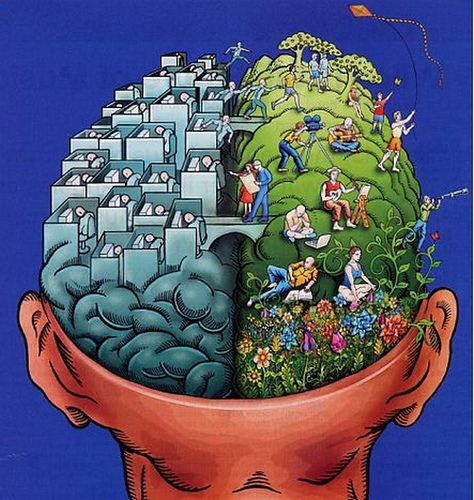Everyone probably knows that feeling at the beginning of a new school year – it takes some time to get the ball rolling. It’s no surprise because you spent the whole summer break doing something else, and all the knowledge from last year is covered in cobwebs. Aside from the lack of rhythm to get things done, you frequently ask yourself: “How did I do that again?” So, how would you like to start your school year like a boss? Here are three tips to get the most out of it!
 Picture by “TZA” (CC BY-NC 2.0 license)
Picture by “TZA” (CC BY-NC 2.0 license)
Use your prior knowledge
If you happen to forget something make sure to look it up immediately. Research has shown that we can remember novel information more efficiently if we link it to prior knowledge in our brain. This seems to be straightforward, but this simple trick is often overlooked. It is, for example in maths, wise to relate information about how to integrate to the existing knowledge of how to differentiate. On the other hand, it is more difficult to learn about the history of slavery when you have not learned about colonisation. A small glimpse in last years’ books or notes often helps a lot to restore and relate novel information to prior knowledge. Not to mention it never hurts to recall what you did last year.
It is definitely wise to restore the link between existing and novel information because the high school and university education systems are built on these links. At the start of a new year, these links may well not be obvious, but spend a little time making associations and you will find studying a lot easier.
Tests
A second tip is to quiz yourself on your newly acquired knowledge. Recalling is a more effective method to retain information than reading a chapter over and over again, or drilling information into memory. So, try to answer all the questions at the end of a chapter, ask your teacher for some additional test questions, or have a look at some old exams. You can also find a lot of resources on the internet but be aware of incomplete or inaccurate information.
Spreading
Last but not least, make sure to take sufficient breaks in between study sessions to digest the new information. This applies to both both short (e.g., one day) and long (e.g., several, or a month’s worth of) study periods. Spreading out your study sessions, and regularly recalling what you have learned will signal to your brain the importance of the information. If you only study the day before the test you will only benefit from briefly retainin the information, and remember nothing in the long term. Finally, by keeping information in long term memory, you also gain the benefit of using it to link subsequent new information.
This blog is written by Marlieke van Kesteren and can also be read in Dutch here. Marlieke is post-doctoral researcher at Stanford University (US). During her PhD, she studied the effect of prior knowledge on cognitive brain processes.
Translated by Bart.

Perfect tips & tricks. However, why use a picture representing the neuromyth about left and right brained people?
Maybe to attract to more casual audience? 😉
I wondered the same, though.